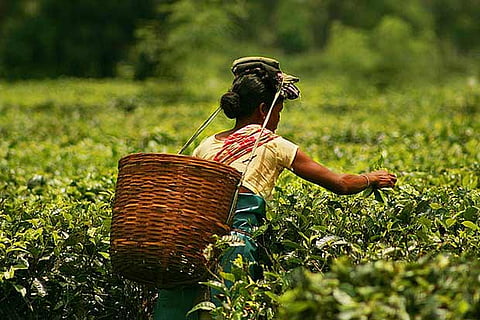

East Khasi Hills
A village which was once notorious for drunken brawls with brewing country liquor common in houses has now turned into a model village by brewing tea.
The brainchild of former school teacher and village headman D L Nongspung, the Mawlyngot Tea Grower’s Society has 20 farmers who have transformed the village with a cooperative model to produce over 3,000 kg of organic green tea leaves annually in 50 hectares of land. Since the last two years they are even exporting green tea to Australia.
A decade ago, Mawlyngot, located about 45 km from Shillong, was infamous for alcoholism. The women produced a brand of rice and millet liquor known as ‘pyrsi’ in the local Khasi language.
Now the same women have switched over to brewing the delicate flavours of green, white and orthodox black tea, branded as ‘Urlong’ which means ‘Dreams come true’ in their language.
A mother of nine children, 46-year-old Mortabon Umsong is one such woman.
“As young girls we were frightened to step out due to drunkards roaming around,” she told PTI.
With initial funding from the Ministry of Tribal Affairs, tea saplings were planted in 2003 and after four years, plucking of leaves began. Later on, they found support from World Vision India (WVI) for setting up a tea processing unit.
“One of the most significant impacts that we have seen with the shifting of occupation from liquor to tea plantation is that alcoholism, conflict, broken family and other social evils prevailing in this village have reduced tremendously over these years,” WVI officials said.
Out of the 20 tea farmers, 11 are women. Indashisha Suting says she and her husband both toil hard on their two-hectare plot of land from morning till evening to produce the tea crop.
After plucking, the leaves are then brought to the co-operative’s tea processing factory in the village where the labourers produce finished tea and do the packaging.
Visit news.dtnext.in to explore our interactive epaper!
Download the DT Next app for more exciting features!
Click here for iOS
Click here for Android